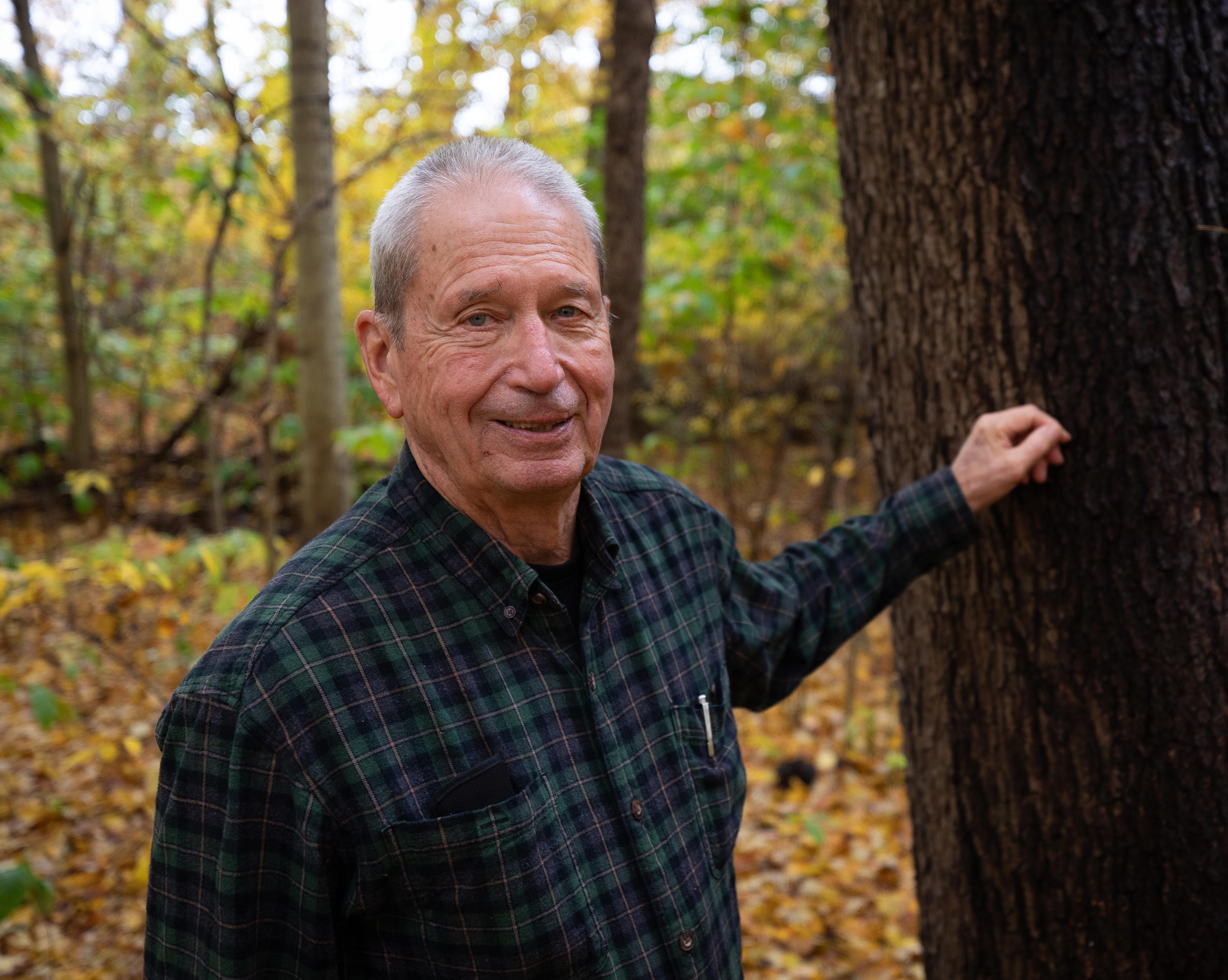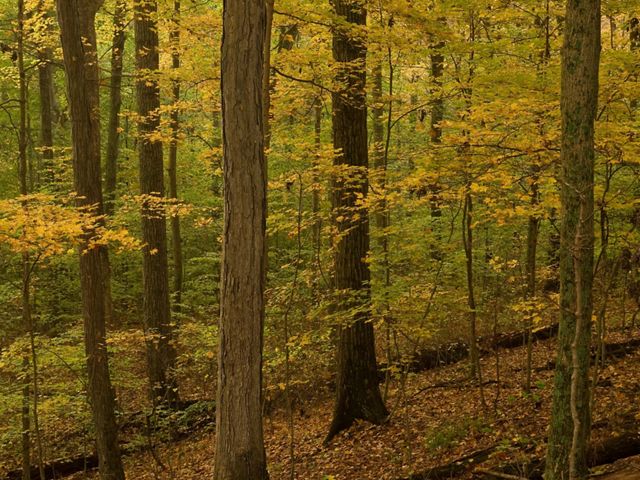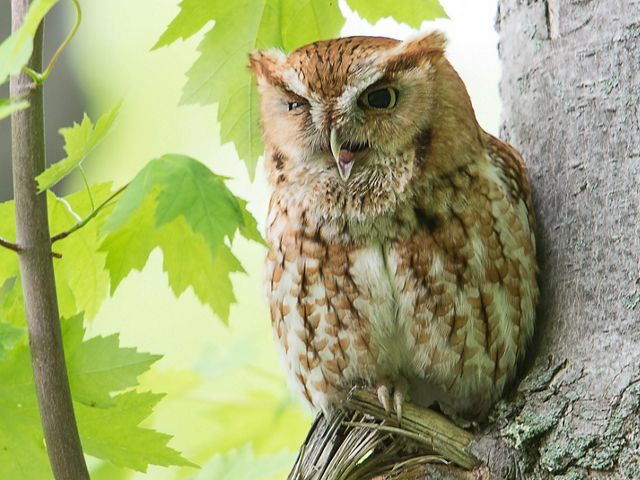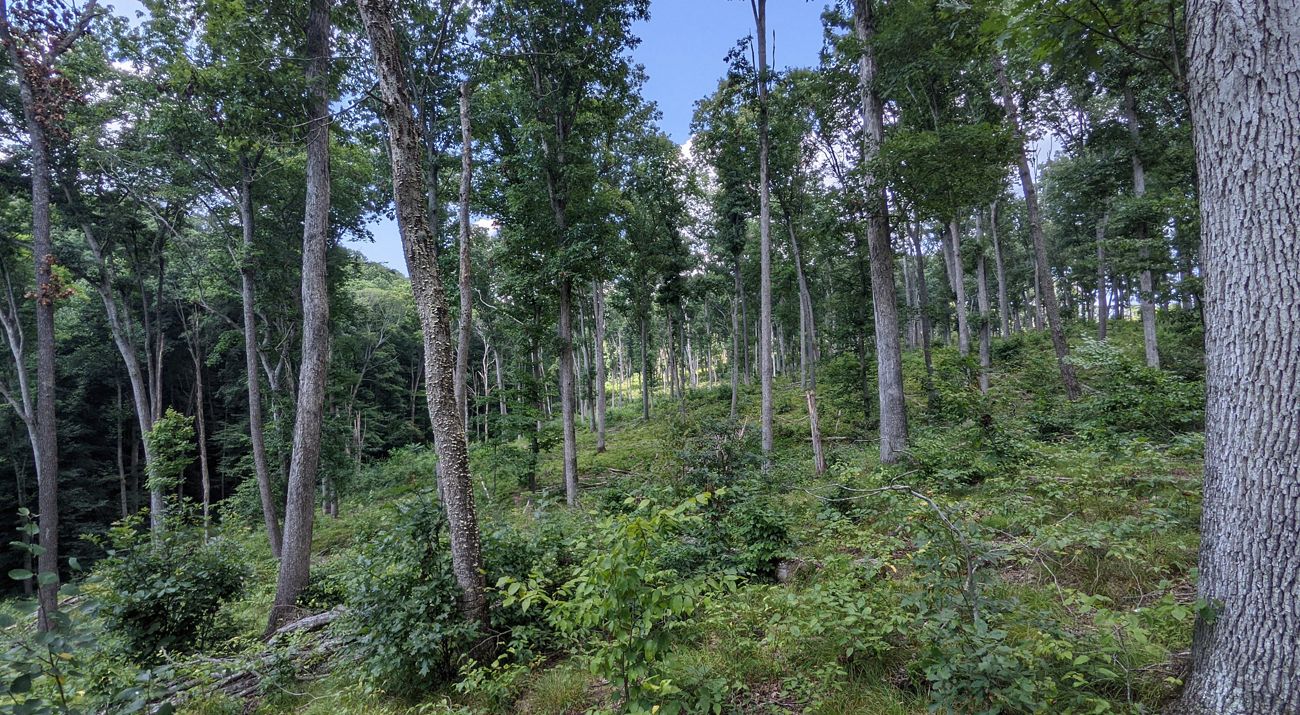The Forest Bank
TNC created this conservation option to help protect privately-owned forests in Indiana.
Forests are many things to many people. For some, forests represent survival, providing food, shelter, water and livelihood. For others, they represent biodiversity, furnishing homes to over half the world’s terrestrial plants and animals.
Finding ways to sustainably manage them is imperative to safeguarding the many benefits they provide to both people and wildlife. Indiana forests provide a diverse array of habitats that support a wealth of wildlife. They also provide clean water by acting as natural sponges that absorb and filter rainfall and clean the air we breathe while sequestering and storing carbon dioxide.
From Douglas Woods in the northeast part of the state to Wallier Woods along the Ohio River, TNC-owned and managed forests are doing all of these things. But with 3,600,000 acres of Indiana forests in private ownership, focusing solely on what TNC and public partners own will not maximize the benefits that forests provide.
That’s why TNC foresters work with many landowners, foresters and conservation partners to help preserve and enhance the ecological, economic and social benefits of
Indiana’s privately-owned woodlands and secure the resiliency of our forests not just for today, but for generations to come.
The Forest Bank
Purchasing land for conservation is highly effective but very expensive. Realizing this, many years ago, TNC thought creatively about other ways to protect Hoosier forests and came up with The Forest Bank program. The Forest Bank is an alternative for private landowners to conserve working woodlands while preserving opportunities for recreation, wildlife habitat, natural beauty and solitude.
How does a forest bank work?
When a private landowner enters into a 30-year Forest Bank agreement with TNC, he or she agrees to allow us to carefully manage the timber on the property in return for an annual payment based on the value of that timber. Landowners enjoy the economic benefits of their timber while ensuring that harvests are carried out with the utmost attention to sustainability.
Woodlands enrolled in the Forest Bank remain private property. Landowners can still hike, hunt, fish, cut firewood and use their woodland just as they normally would as long as the health and growth of the forest is not hampered.
TNC works with the landowner to develop a sustainable management plan for the property that meets the landowner's objectives as well as TNC’s ecological objectives.
The Nature Conservancy then implements the management plan, generating income for the landowner and ecological benefits for songbirds, threatened and endangered species, woodland wildlife and people.
The Forest Bank gives a landowner access to the expertise of foresters, biologists, botanists and other Nature Conservancy scientists to help with land management.
Working Woodlands for People and Nature
The Nature Conservancy has been working in Indiana for more than 60 years to protect our state's natural heritage. During our 60 years, we've helped purchase and protect land for state parks, state forests, the Hoosier National Forest and local land trusts.
In 2001 we started helping private landowners in Indiana sustainably manage their woods for wildlife, timber and the conservation of threatened and endangered species.
We would be happy to answer any questions you might have about forest and wildlife management, timber harvesting, invasive plant control or estate planning.
Whether you own your woodland for hiking, hunting, timber management, wildlife management, bird watching or simply as a family legacy, professional assistance makes woodland ownership even more satisfying.

Example of The Forest Bank
Charlie Hetrick
Charlie Hetrick’s family has owned land in Union County since 1903. On this land are 84 acres that include woods and restored pastureland. The woods had always been a special place for the family, and Charlie wanted to make sure it wouldn’t be sold and unsustainably logged.
In 2011, Charlie met with TNC to discuss options for preserving his family’s land. After several meetings with TNC staff , the 84-acre tract was transferred to TNC in 2014; it is now known as Hetrick Woods.
Soon after TNC received the land, Hetrick Woods was infested by the emerald ash borer. Sadly, well over half of the trees were ash species. Within 12 months, ash trees began
showing signs of stress. TNC conducted a selective timber harvest on the property. This created an opportunity for TNC to shape how the forest is going to grow for the next 100 years. Since there were so many ash trees growing in this forest, the harvest created small openings where full sunlight would reach the forest fl oor.
Hetrick Woods is an island of forest in a sea of agriculture. It is one of the stepping stones that migratory songbirds use on their journey from Central America or the Caribbean to the Midwest and further north in the spring. Like any good rest stop on a long trip, having a good place to sleep and eat is important. Stands of trees such as this (also known as thickets) provide abundant soft fleshy fruits and insects, which are the energy-rich food birds need when flying dozens of miles per day. The dense cover of trees and shrubs is a great place for birds to fi nd cover when they need to rest.
Visiting the woods now and seeing thousands of tree seedlings creating a healthy rest stop is a powerful reminder of the resilience of Indiana forests.

Learn More about The Forest Bank
The Forest Bank offers 10- and 30-Year Agreements. Learn more with this Forest Bank Fact Sheet.
Forest Bank Facts
- There are currently about 8,700 acres and 64 landowners enrolled in the Forest Bank in 12 counties in Indiana.
- The Forest Bank is certified sustainable through the Classified Forest and Wildlands Program by the Forest Stewardship Council® FSC®-C012858.
- The Forest Bank provides an annual financial return from the forest while protecting critical habitat for plants, animals and natural communities.
- The Forest Bank began in 2002 and is backed by more than 60 years of professional land management by TNC in Indiana.
- The Forest Bank gives a landowner access to the expertise of foresters, biologists, botanists and other TNC scientists to manage woodlands for biodiversity.
Contact TNC at indianaforestbank@tnc.org or 812-200-4040 for more information about the Forest Bank.

Saving Indiana's Songbirds Starts in Our Forests
TNC's Forestry for the Birds brings forest managers and bird lovers together to promote the well-being of both—and all who depend upon them.

